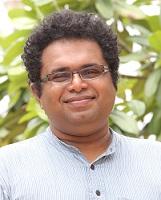
NLU Delhi’s Centre on the Death Penalty, which has produced a considerable number of influential reports and assisted in representing numerous death row prisoners, has widened its focus and re-branded to become Project 39A.
Article 39A states that: “The State shall secure that the operation of the legal system promotes justice, on a basis of equal opportunity, and shall, in particular, provide free legal aid, by suitable legislation or schemes or in any other way, to ensure that opportunities for securing justice are not denied to any citizen by reason of economic or other disabilities.”
“This expansion will allow conversations on many more issues that anyway lie at the heart of the crisis in India’s criminal justice system,” the centre’s director, assistant professor Dr Anup Surendranath told us.
The centre now had 20 full-time staff, he added, involving around NLU Delhi 20 students per year, plus around 15 students from other law schools that intern there.
And despite the representation of death row prisoners not always having been easy politically and in terms of public perception, this was not the reason for the rebrand, according to Surendranath’s email announcing the change, and the centre would retain its “intensity” of engagement with the death penalty.
In an email announcing the change, he wrote: “The decision by National Law University, Delhi to back such an endeavour is in the highest traditions of the role of universities in societies such as ours. Given the polarising nature of the death penalty, it hasn’t been easy for the University to support our work. It speaks volumes of the leadership at the University that, apart from the unwavering support we have received, there has been constant encouragement to broaden and deepen our engagement with the criminal justice system.”
However, its new avatar as Project 39A would “open up interesting avenues of enquiry into critical areas of the criminal justice system in India”, he said.
In the email he also added:
It is with great excitement that we are announcing our transition from the Centre on the Death Penalty to Project 39A at National Law University, Delhi.
Project 39A draws inspiration from Article 39-A in the Indian Constitution on equal justice and signals the broadening of our engagement with the criminal justice system in India. While retaining the intensity of our engagement with the death penalty, Project 39A will also see us explore issues of forensics, torture, forensic psychiatry and legal aid. This broader approach reflects our belief that multiple aspects of the criminal justice system need research and intervention to address the barriers that impede the effective access to justice.
Our journey as the Centre on the Death Penalty from August 2014 has been one of immense learning. All three areas of our work - research, litigation and public outreach - have posed unique challenges in terms of ethics, strategy and access. Beginning with the Death Penalty India Report, our research efforts have also looked at trial court death penalty sentencing (report forthcoming in August 2018), mental health of death row prisoners (report forthcoming in October 2018) and an opinion study with 60 former Supreme Court judges (Matters of Judgment). We are now also involved with the pro bono legal representation of nearly 65 death row prisoners across India through our litigation efforts. Our public outreach efforts on the death penalty has seen us publish annual death penalty statistics, develop creative strategies using literary and cultural resources and engage with a wide range of audiences.
threads most popular
thread most upvoted
comment newest
first oldest
first
P.S- Thanks are also due for your great forensics on that approval which you said has expired and the company has not applied for.
You're a winner.
wink
threads most popular
thread most upvoted
comment newest
first oldest
first